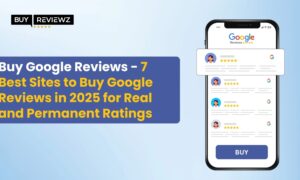The U.S. Department of Justice sought a second antitrust victory against Google on Monday, presenting its last defence that the firm unlawfully controlled online advertising technology.
TakeAway Points:
- In an attempt to secure a second antitrust victory against Google, the U.S. Department of Justice presented its last defence on Monday, claiming that the firm unlawfully controlled online advertising technology.
- Google has argued prosecutors are bending U.S. antitrust law to force it to accommodate competitors’ services and that the case is focused on incidents from years past when Google was still building and improving its offerings
- Zoom had more profit and revenue than analysts had expected in the October quarter, and executives pushed up the company’s full-year forecast.
US antitrust lawsuit against Google comes to an end
The closing arguments in Alexandria, Virginia, cap a 15-day trial held in September where prosecutors sought to show Google monopolized markets for publisher ad servers and advertiser ad networks, and tried to dominate the market for ad exchanges which sit between buyers and sellers.
“Google rigged the rules of the road,” said DOJ lawyer Aaron Teitelbaum, who asked the judge to hold Google accountable for anticompetitive conduct.
Google has argued prosecutors are bending U.S. antitrust law to force it to accommodate competitors’ services, and that the case is focused on incidents from years past when Google was still building and improving its offerings.
Publishers testified at trial that they could not switch away from Google, even when it rolled out features they disliked, since there was no other way to access the huge advertising demand within Google’s ad network.
News Corp. in 2017 estimated losing at least $9 million in ad revenue that year if it had switched away, one witness said.
If U.S. District Judge Leonie Brinkema finds that Google broke the law, she would consider prosecutors’ request to make Google at least sell off Google Ad Manager, a platform that includes the company’s publisher ad server and its ad exchange.
Google offered to sell the ad exchange this year to end an EU antitrust investigation but European publishers rejected the proposal as insufficient, as reported in September.
Analysts view the ad tech case as a smaller financial risk than the case where a judge ruled Google maintains an illegal monopoly in online search and where prosecutors have argued the company must be forced to sell its Chrome browser.
Zoom surpasses expectations and calls for another quarter of single-digit growth
Zoom shares were down 4% in extended trading on Monday after the video calling software maker announced strong fiscal third-quarter results and gave quarterly guidance that was just slightly above expectations.
According to LSEG consensus, Earnings per share: $1.38 adjusted vs. $1.31 expected, while revenue: $1.18 billion vs. $1.16 billion expected
Zoom’s revenue grew about 4% year over year in the quarter, which ended on Oct. 31, according to a statement. Zoom has increased revenue in the single digits for two and a half years, a sharp departure from 2020 and 2021, when the COVID-19 pandemic led the business to triple in size.
Net income, at $207.1 million, or 66 cents per share, was up from $141.2 million, or 45 cents per share, in the same quarter a year earlier.
The company reported 192,400 enterprise customers in the quarter, up 800 customers from the previous quarter.
With respect to guidance, Zoom called for $1.29 to $1.30 in fiscal fourth-quarter adjusted earnings per share on $1.175 billion to $1.180 billion in revenue. Analysts surveyed by LSEG were expecting $1.29 per share and $1.17 billion in revenue.
Expectations for next year
Zoom bumped up its view for the 2025 fiscal year. It expects $5.41 to $5.43 in adjusted earnings per share, with $4.656 billion to $4.661 billion in revenue. The middle of the revenue range implies about 3% growth.
LSEG’s consensus was $5.35 per share on revenue of $4.64 billion. In August, Zoom said it was looking for $5.29 to $5.32 per share and revenue between $4.63 billion and $4.64 billion.
During the quarter, Zoom said in the first half of 2025 it will release a premium custom AI companion that could connect to corporate glossaries and services such as ServiceNow and Workday. Zoom also started offering single-use webinar options, with room for up to one million attendees.
As of Monday’s close, Zoom stock was up about 24% this year, while the S&P 500 index had gained 25%.
The company also said its corporate name is changing from Zoom Video Communications to Zoom Communications Inc.
“This change reflects our evolution into an AI-first work platform for human connection and our vision for long-term growth,” Zoom’s founder and CEO Eric Yuan said on a conference call with analysts.



































